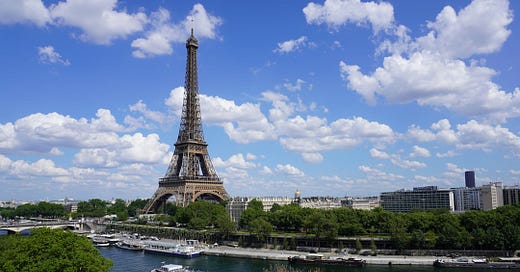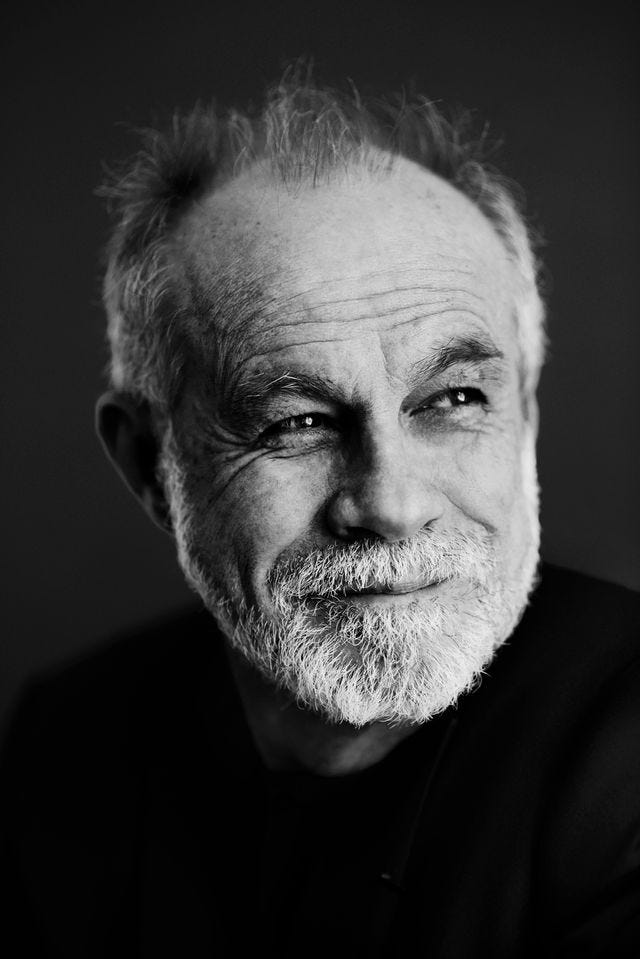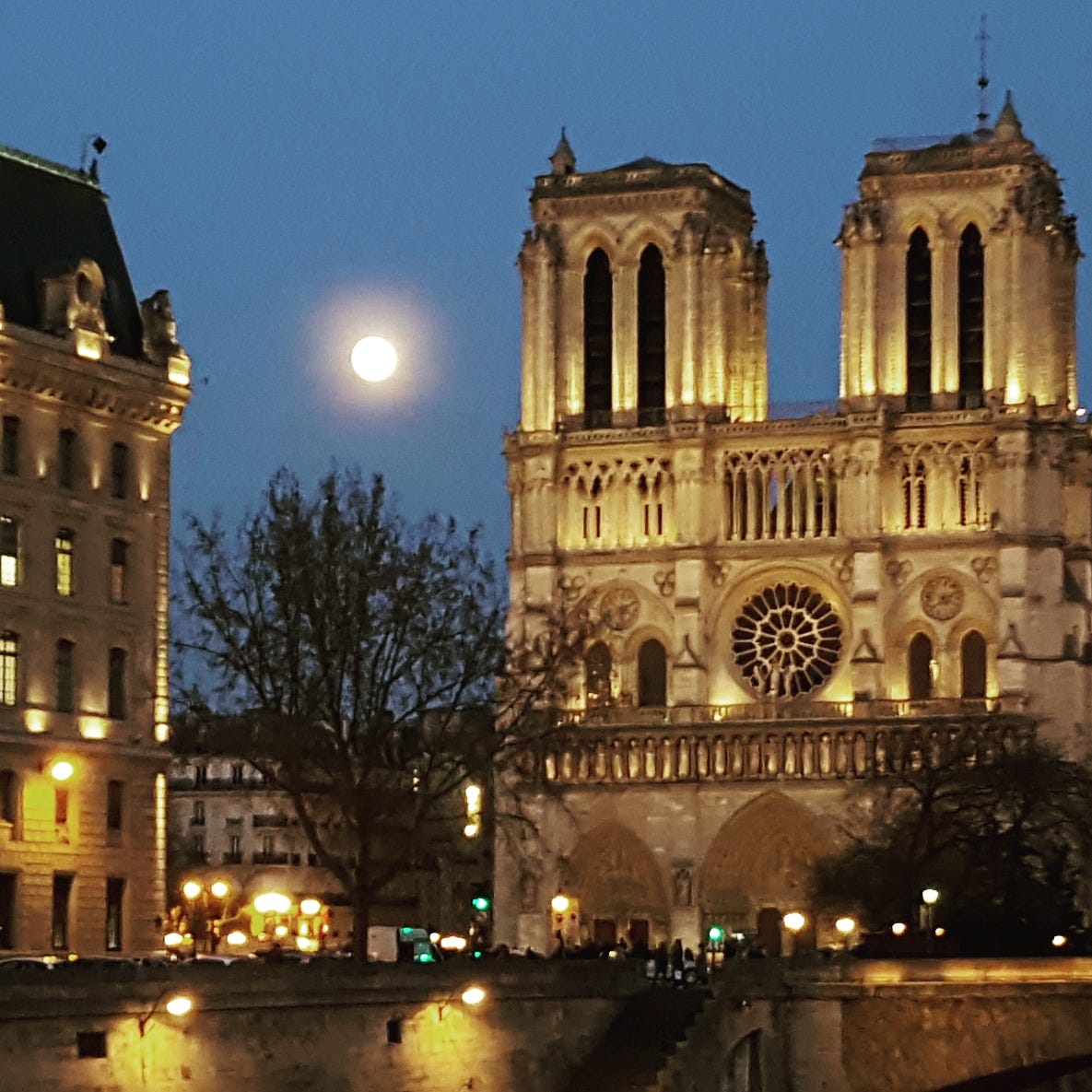Even if the political news is more exciting than it’s been in some time, the Olympics in Paris is going to be worth your attention - and not only because of the sports.
Many recent Olympics have been held in Asia while anti-Olympic protests have become common elsewhere. And for good reason: the supposed economic benefits to a host city have proved to be illusory.1
But Anne Hidalgo, the bold socialist Parisian mayor, has turned the Games into a showcase, or perhaps case study, for making 21st-century improvements to a beautiful old city. Central to that effort is the concept of the “15-minute city,” which aims to make Paris better prepared for the future as well as for a global sports event (and 15 million visitors!).
I was keen to have a conversation with her collaborator and strategist, Carlos Moreno, before the Games began. We spoke for an hour last week, and you can listen here, at the link above, or on Apple or Spotify.
Professor Moreno recently published The 15-Minute City, which sets out his proposal for “saving our time and our planet.” The book includes a number of examples, not only in France but in Brazil, Korea, Poland, and the United States. We talked about preparations for the Olympics, and he alerted me to Mayor Hidalgo’s “Olympian Plunge in a Beautified Seine” the day before. (I fell in love with the Art Deco Pontoise pool on the Left Bank a few years back, but I wonder if I’ll also be able to take a dip in the river and swim past Notre Dame?)
In our conversation, Professor Moreno stresses 3 priorities, with social and environmental benefits:
Low-carbon infrastructure and life patterns to reduce our CO2 footprint.
Vibrant local economy with the support of the private sector for generating more jobs and more local activities.
Improved social integration to connect residents, increase opportunity, and reduce conflict and exclusion.
There is a paradox in the concept of the 15-minute city. It is simple, clear, and attractive on a human level because it’s about living at human scale. But it is also a significant change in the infrastructure trajectory of the last 100 years (and perhaps even of the past 200 years, since the industrial revolution). This terrifies many people.
I used to think that resistance to change was primarily driven by companies worried that their business model wouldn’t work in a more social and more sustainable world. And that’s certainly the case. (Just ask yourself who benefits from keeping children on screens all the time.) But there is also personal resistance to change, even when the change might be beneficial. It’s hard to imagine living and working in a walkable community if you’ve spent your whole life driving and surrounded by cars.
I learned how important it is to get people’s imaginations engaged when I was giving talks about bringing back passenger train service. The majority of Americans have never been on a train: most of the US has no meaningful public transportation, and most Americans have never traveled abroad. This is one reason I hope to get refurbished London Underground carriages on our line: to give people a taste of traveling by train to go for a meal or to shop in the next town.
When we hear a proposal for change, the instinctive response is to resist. We’ve seen this with hamburgers, and gas stoves, and cars. Moreno has even faced online conspiracy theories and death threats.2 What Paris offers us is a chance to see how new approaches can make an iconic global city even more attractive and more livable. Yes, there are bound to be setbacks, and fixes to make. But that’s part of the work to be done. As the 15-minute city, or 20-minute neighborhood, or 30-minute region is attempted in different places, we’ll see different approaches - and lessons learned and shared. Portland, Oregon and Cleveland, Ohio are US cities with very different demographics and geography, and I’ll bet each will come up with ideas that can be useful elsewhere.
I found this conclusion to an article on public policy relevant to urban planning as well as to other big challenges of today: “America faces many difficult choices in the years ahead that will be costly for any party or politician to confront. More and more, these incoherent policy positions simply point to problems with no easy solutions, and decisions that no one wants to make.”
Third places are an integral part of the 15-minute city
In Europe there’s an assumption that social life matters. This is easy to see in articles about eating in Paris – in, for example, the advice to book at restaurants because people expect to spend the evening eating and talking together, so you can’t expect the kind of turnover we see in US restaurants. “Brasserie vs Bistro vs Restaurant vs Café: What’s the Difference?” makes the social aspects of eating and drinking very clear.
Ray Oldenburg had thoughts on this subject in the original The Great Good Place:
Part of the problem, then, is that Americans have been able to assume that places for connecting and associating would somehow naturally be there . . . unlike cultures that took care to space enough biergartens or bistros to gel their urban localities into a collective life. In contemporary urban America, congenial public gathering places are rare. Here and there a handful of urban dwellers may find camaraderie, often to their surprise, in a laundromat. And sometimes a writer will encounter one of these settings and write about this tiny but glowing ember of humanity among the cold ashes of our public domain, and do so as though it represented an American triumph. Our expectations seem as small as the amount of space we’ve preserved for an informal public life.
Read about the 15-minute city concept being implemented in Cleveland, Ohio. I especially love the featured image of the Literary Tavern, and its tagline: “Where locals spend their evenings & strangers leave as friends.” Maybe we can rediscover conviviality!

I wrote about Boston’s withdrawal in 2015, quoting Professor Susan Brownell, a long-time friend and Berkshire contributor, was countering the concern that this showed the decline of Western power and influence. Not so, said Brownell: “It is in the West’s interest to allow non-western nations to bear the financial burden of hosting a mega-party that provides western-based multinationals with a platform for strengthening their global networks and moving into non-western markets. Western powers still get to dominate the global political economy, while the emerging nations appreciate the coming-out party.”
Here’s a gift link to “He Wanted to Unclog Cities. Now He’s ‘Public Enemy No. 1’” in the New York Times.

















Share this post